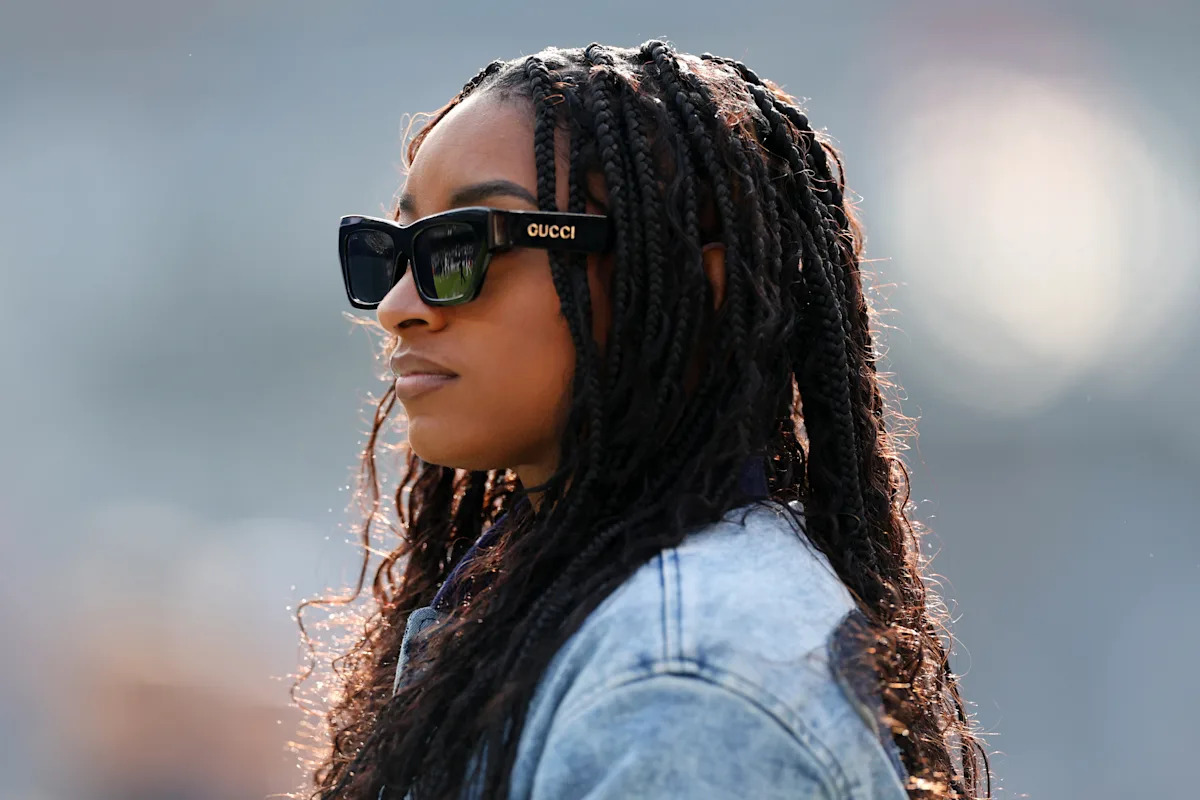In recent days, the world of sports has seen a significant exchange between two prominent female athletes: Olympic gold medalist Simone Biles and former college swimmer Riley Gaines. This interaction, primarily conducted on the social media platform X, highlights complex issues surrounding competitive equity and inclusivity in women’s sports—a topic that continues to ignite passionate discussions nationwide.
In a series of tweets, Biles and Gaines found themselves at odds, stemming from Gaines’s criticisms regarding the inclusion of transgender athletes in women’s sports. The crux of their disagreement was ignited when Gaines publicly challenged a high school girls’ softball team, stating that one of its players was transgender. This particular tweet drew the ire of Biles, who responded by criticizing Gaines for her comments, labeling her as a “sore loser” and a “bully.” The exchange quickly escalated, reflecting the broader societal debates about gender, identity, and fairness in athletics.
Recognizing the importance of her position and the influence of her words, Biles later issued a heartfelt apology to Gaines. In her post on Tuesday, she reflected on her previous remarks, stating that she regretted not showing “empathy and respect.” Biles acknowledged that while she firmly believes in “competitive equity and inclusivity” as essential elements in sports, she does not wish to support policies that compromise fairness within women’s athletics.
Biles specifically took issue with Gaines’s choice to single out a child in her criticism, emphasizing that individual athletes, particularly young ones, should not be targeted for systemic issues that are beyond their control. She articulated her belief that sports organizations have a duty to develop rules that ensure inclusion but also maintain the integrity of competition. Biles concluded her post with a hopeful vision, stating, “We all want a future for sport that is fair, inclusive, and respectful.”
The context of this disagreement is pivotal; both athletes occupy important spaces in the ongoing discourse about the role of transgender athletes in competition. Simone Biles, a celebrated gymnast, has long been a figure of empowerment in sports, advocating for mental health awareness and inclusivity. Riley Gaines, a former swimmer from the University of Kentucky, gained notoriety for her staunch stance against transgender women competing in women’s sports after a controversial race with transgender swimmer Lia Thomas in 2022. This altercation galvanized her into becoming a prominent voice in the movement advocating for the rights of biological female athletes.
The incident between Biles and Gaines is not merely a clash of personalities; it is emblematic of a larger cultural conversation. On one side lies the push for greater inclusion of transgender individuals in sports, advocating for the rights and recognition of all athletes irrespective of gender identity. On the other side is the cry for protecting women’s sports and ensuring a level playing field for biological females.
As discussions progress, the narratives around competitive equity and inclusivity continue to evolve. Supporters of inclusion argue that sports should be a welcoming space for everyone, promoting athletes’ well-being and identity. Conversely, those who support the protection of women’s sports often worry that allowing transgender women to compete may undermine the efforts made for women’s equality in athletics.
Gaines, in the aftermath of Biles’s apology, expressed disappointment in what she perceived as a lack of understanding of the issues at stake. Over the weekend, she took to her platform to issue numerous tweets, reinforcing her beliefs and perspectives on the matter. However, as of this writing, she has not publicly addressed Biles’s apology.
This ongoing dialogue emphasizes the need for respectful discourse, especially in a space as charged as sports. As Biles aptly pointed out, young athletes should not bear the weight of criticism directed at systemic issues within sports organizations. Such conversations require careful attention, empathy, and a willingness to understand differing points of view.
Ultimately, Biles and Gaines’s exchange illustrates the need for a balanced approach to these discussions—one that honors the rights of all athletes while striving for fairness in competition. The concept of competitive equity and inclusivity does not have to be mutually exclusive; instead, it can be pursued alongside the commitment to safeguarding women’s sports.
As the sports community continues to grapple with these critical issues, it becomes ever more essential for athletes, administrators, and fans to engage genuinely and empathetically, seeking solutions that honor the spirit of competition while promoting inclusivity. The hope is that through dialogue, understanding, and collaboration, a pathway can be established that upholds both the integrity of women’s sports and the commitment to inclusivity for all athletes.
This case serves as a reminder that behind every athlete are individual stories, experiences, and aspirations. With respectful discourse, the sports world can work towards a plane where every voice is heard, and every athlete has the opportunity to compete with fairness and dignity.
Source link










